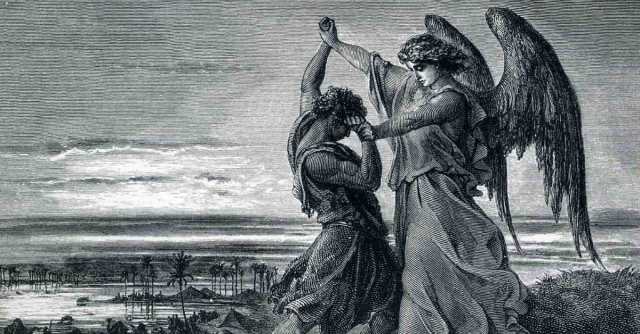In my online wanderings recently the locus of Christian faith has come up. It is oriented around the age-old debate of the origination of faith; and in fact, what faith is. Is justificatory faith before God a quality inherent to the human (so, a Pelagian frame), or is it a reality that is alien to and outside of human agency that is given as gift to humanity (whether that be given to certain ‘elected’ humans or to all of humanity)? I would argue, along with Karl Barth, that justificatory faith is an outside of us reality that comes to us as God’s gift to us in and through the vicarious human agency of the Logos ensarkos, Jesus Christ. In this way “saving faith” is first an ingress of the Son’s faith for us; it is His trust in the Father’s will for us, even as that is actualized in His freely chosen humanity for us (Logos incarnatus). It is by these means that faith can be said to be a capacity of humanity, even while that capacity is grounded in the divinely grounded person of Jesus Christ pro nobis (for us). The upshot of this is that the integrity of both God and humanity is upheld, insofar that faith before God is understood as a capacity freely given by God to humanity through the vicarious humanity of Jesus Christ; the archetypal humanity that reflects what a genuinely created humanity looks like as the triune God has always already intended.
Karl Barth writes,
We may dismiss briefly, on the one hand the idea that faith is a magical quality imparted to man and enabling him to surpass the nature given him at creation, and on the other idea that is an activity which man produces of himself simply by exercising a capacity which belongs to him by nature. The true source of faith is the Word of God. Faith, therefore, is a new activity which man cannot of himself decide to undertake, and which he has no power of himself to undertake. When it takes place, faith is a historical determination of human existence, a determination in the history of salvation. But—in opposition to the first view—it is an awakening of man to his own activity which as such is not merely within the sphere of his own creaturely nature, but corresponds at every point to the highest natural determination of his creatureliness; just as the incarnation of the Son of God, which is the great pattern of the origin of faith, means not only a completely unmerited liberation of human nature, but also and for that very reason a restitution of its highest creaturely determination.
We may also dismiss, on the one hand the idea that faith is a blind subjection to a law imposed upon the will and understanding from without, and on the other the idea that it is a conviction of the truth and importance of certain objective facts, a conviction which is established and attained by man himself, and then, and for this reason, chosen and adopted by man himself. As opposed to the second idea, faith is, of course, an arrest and commitment in which man is set free from his own caprices and acquires a Lord whom he must follow. It is a new strange light shining upon man from above. But—in contrast to the first idea—it not only shines upon human life, and therefore the human will and understanding, from without, but it also illuminates them from within. It does no close our eyes, but opens them. It does not destroy our intellect and compel us to sacrifice it, but it sets it free just as in a definite sense it captivates it, i.e., for itself. It does not break down our will, but sets it in free movement; just as the incarnation of the Son of God, the pattern of our nature of faith, is actual and visible not only in the perfect obedience but also in the perfect sovereignty of the activity of Jesus Christ.[1]
As previously noted, as Barth has helped to develop, Christian faith rightly understood, is a faith that comes to us, not of our own strength or human nature, but by God’s free gift and choice to become us in Jesus Christ, that we, by that grace, might become Him as co-heirs with His dearly beloved Son, Jesus Christ.
There is a way to maintain both the integrity of God and the integrity of humanity vis-à-vis the reality of justificatory faith; indeed, this way is forged by the inbreaking of God’s life for the world in and through the womb of Mary. It is by these means that we can think of faith from within a non-competitive relationship between God and humanity; surely, as that has been begotten in the Son of God become man. The online, and superficial debates surrounding this issue, should take heart; there is a better, indeed a Christian way to parse the false-binary made by our own untamed discursive imaginations.
[1] Karl Barth, Church Dogmatics III/3 §49 [247] The Doctrine of Creation: Study Edition (London: T&T Clark, 2010), 247–8.
